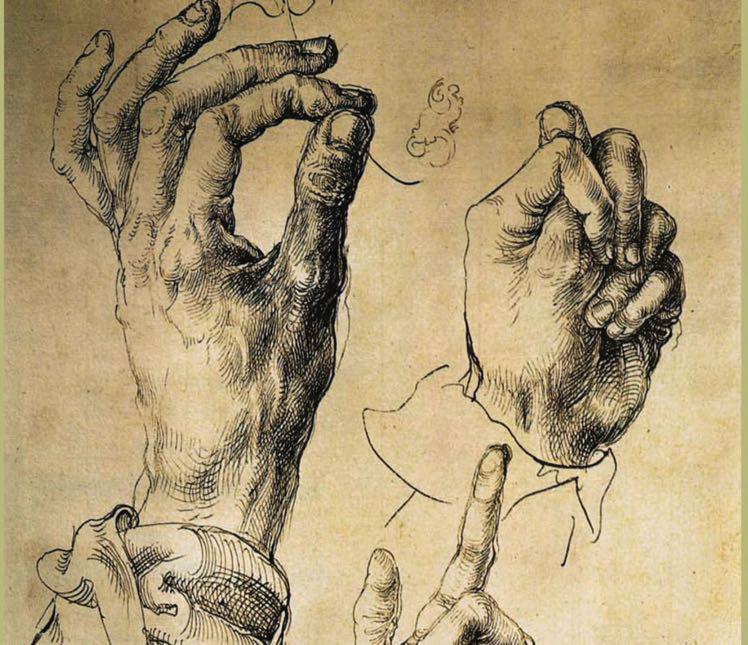
Readers with long memories may recall that your columnist has a special affection for the human hand. Way back in 2001, he reflected on 'Carpal Knowledge: The Natural Philosophy of the Caress' in Issue 33. In 2008, he raised 'Some Points About Pointing' in Issue 70. And more recently (but how distant it now seems!), at the beginning of the Covid pandemic, he took the opportunity provided by reflections on handwashing to invite readers to use their hands to applaud those very same structures (Issue 138, 'Philosophy in the Time of Plague, Pt.1').
My return to the hand has been prompted by my recent experience of talking at the triennial meeting of the International Federation of Societies of Hand Surgeons at the ExCel Centre in London. The Centre was populated by hundreds of surgeons, physiotherapists, occupational therapists, clinical psychologists, nurses, bioengineers, and many others devoted to using their hands (and heads and hearts) to the restoration and even transplantation of hands, which are so central to our interaction with the material world and with each other. The convergence of science, clinical acumen, dexterity, ingenuity, insight, compassion, and humanity was humbling. The vast collective of hands present and absent mobilized to restoring the structure and functions of damaged hands was a heartening example of how we can work together for mutual benefit. It has prompted me to rehearse with you a story (perhaps a 'Just So' story) which I first set out in The Hand: A Philosophical Inquiry into Human Being (2003), regarding the role played in the emergence of our distinctive human nature by this astonishingly versatile organ of manipulation, of palpation (it's the chief organ of the fifth sense), of prehension - in which manipulation and cognition combine to reveal the nature of that which is handled - and of communication, realized in countless gestures.
The Genesis of Humanity
この記事は Philosophy Now の August/September 2022 版に掲載されています。
7 日間の Magzter GOLD 無料トライアルを開始して、何千もの厳選されたプレミアム ストーリー、9,000 以上の雑誌や新聞にアクセスしてください。
すでに購読者です ? サインイン
この記事は Philosophy Now の August/September 2022 版に掲載されています。
7 日間の Magzter GOLD 無料トライアルを開始して、何千もの厳選されたプレミアム ストーリー、9,000 以上の雑誌や新聞にアクセスしてください。
すでに購読者です? サインイン

Metaphors & Creativity
Ignacio Gonzalez-Martinez has a flash of inspiration about the role metaphors play in creative thought.

Medieval Islam & the Nature of God
Musa Mumtaz meditates on two maverick medieval Muslim metaphysicians.

Robert Stern
talks with AmirAli Maleki about philosophy in general, and Kant and Hegel in particular.

Volney (1757-1820)
John P. Irish travels the path of a revolutionary mind.

IT'S A WONDERFUL LIFE
Becky Lee Meadows considers questions of guilt, innocence, and despair in this classic Christmas movie.

"I refute it thus"
Raymond Tallis kicks immaterialism into touch.

Cave Girl Principles
Larry Chan takes us back to the dawn of thought.

A God of Limited Power
Philip Goff grasps hold of the problem of evil and comes up with a novel solution.

A Critique of Pure Atheism
Andrew Likoudis questions the basis of some popular atheist arguments.

Exploring Atheism
Amrit Pathak gives us a run-down of the foundations of modern atheism.